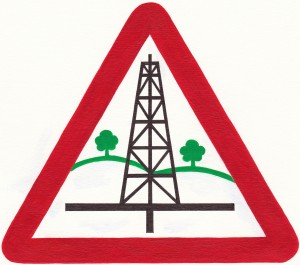Several HADAAF members attended a meeting of the North Yorkshire County Council Scrutiny Committee on Friday 22nd January, to ask questions about fracking. This is what they asked:
Shan Oakes
Good morning everyone. I’d like to invite our elected members to imagine first the Gulf oil disaster – which no doubt was ‘well regulated’ (like many other disaster sites worldwide). Second, please imagine drilling perhaps a mile deep under and through our own unique land and water systems….we know ‘the best laid plans of mice and men’…often go wrong….so please ask yourself how confident we can be that subterranean rearrangement will leave our water ‘pure’ (to use the local MP’s word).
My question to elected members is who will pay for attempts – ATTEMPTS – to clean up our irreplaceable aquifers when wells inevitably fail – sooner or later.
Bill Rigby
I am the Chair of the Harrogate and District Alliance Against Fracking.
We are local representatives, from Churches, community organisations and environmental groups: generally respectful of and indeed representatives of what one may call ‘establishment’; teachers, elected councillors, local government officers; retired and in employment, historically willing to trust the authorities’ judgements. But the HADAAF group’s researches into well documented and authoritative sources have led us seriously to qualify this view in respect of Fracking.
In the interest of simplicity, we would like to recall the old Methodist maxim, a staple in talks to children, where young people were exhorted to consider three things, before making any rash statement, which they may later regret:
Is it true? Is it Kind? Is it necessary?
In respect of the suggestion that we embark upon a massive programme of mining for oil and gas using unconventional procedures at great depth.
Is it true that the extraction of oil and gas by these means
- is not a risk to the health of communities nearby, despite the evidence from expert medical witnesses in the UK, the US and elsewhere?
- will bring economic benefits to local communities in Yorkshire, despite evidence that staff are recruited almost excusively from itinerant workers, the companies are all foreign, and local authorities will be responsible for clean ups when failed mining operations are discovered years after the frackers have departed?
- will lower the price of oil and gas in the UK – when economic experts deny that this is the case?
- will have no waste materials which cannot be processed locally, despite their massive and unusual toxic content?
- will have no impact on the traffic patterns and road infrastructure in a Region already under strain from road system undercapacity?
- that regulations are sufficiently robust to ensure safety, when local experience in Lancashire at the Fylde and East Yorkshire at West Newton demonstrate the opposite?
Is it Kind
- to our communities to have the landscape industrialised,
- to the agriculture sector,
- to communities thoughout the world threatened by climate change
- to the tourist trade and local communities as vastly increased traffic thunders down our lanes
- to the landscape
Is it necessary
- for our energy security that we mine an energy source at twice the price of current global markets?
- that we jeopardise the ability to insure our homes in the light of the impact of mining operations nearby?
- for us to experience catastophic impacts on the value of our homes because of the proximity of mining operations nearby?
- for us to threaten the quality of our water supplies, through the inevitable failure of a high proportion of the thousands of wells?
Mrs Thatcher argued that the coal should be left in the ground because there was a cheaper alternative available in abundance on the international markets
The Coalition government argued that local voices should be heard in opposing windfarm developments, while government now plans to stifle a local voice in decisions on fracking
HADAAF wishes to make clear that this is a policy in need of immediate reconsideration, and North Yorkshire Council is in a position to express this wish to Government on our behalf.
Adam Harper
Submitted a detailed document on atmospheric methane leakage. Read it here Scientific briefing on the evidence regarding methane leaks from hydraulic fracturing


